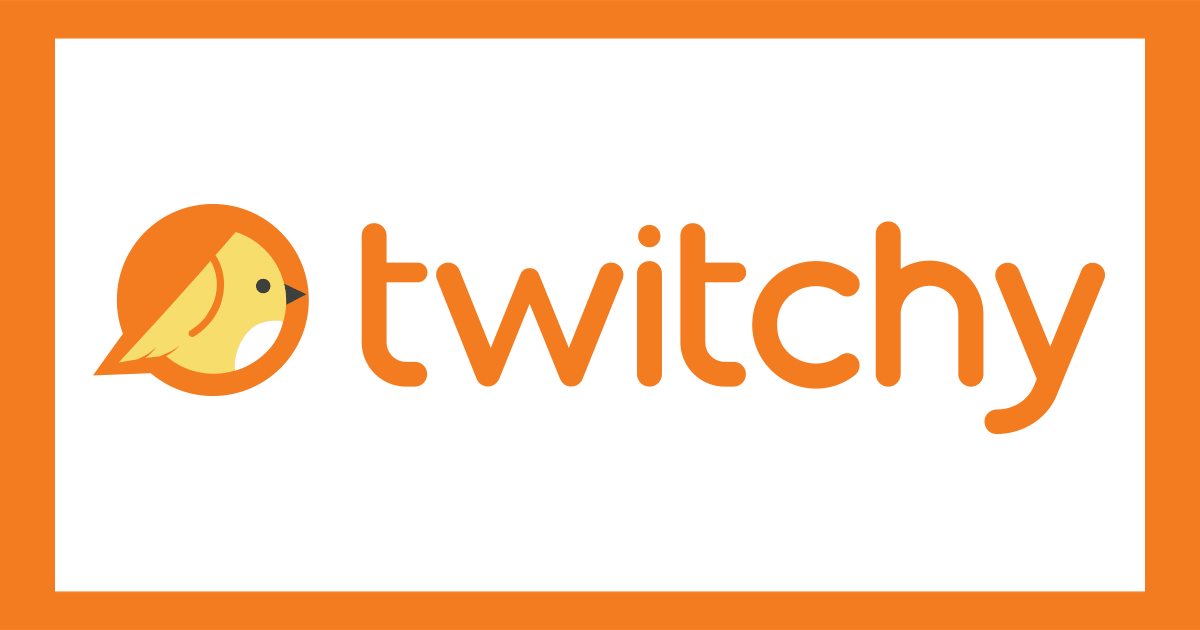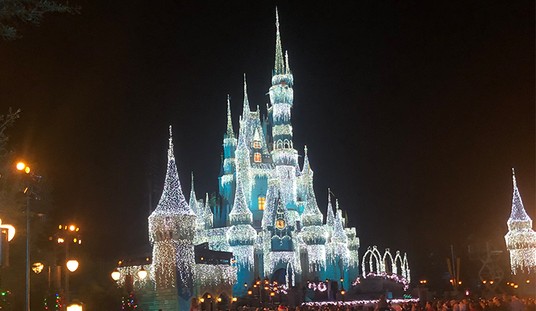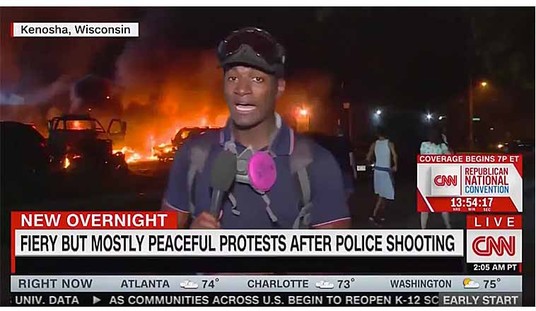Do you folks remember a few years back when two black men, Rashon Nelson and Donte Robinson, were arrested at a Philadelphia Starbucks because they were waiting to meet someone there and, therefore, had not ordered yet? Well, there’s been kind of a huge development:
WOAH
— End Wokeness (@EndWokeness) June 14, 2023
Starbucks was just ordered to pay $25.6M to Shannon Phillips
The NJ jury unanimously determined that she was fired for being white pic.twitter.com/EEeqaUdSPT
The details are provided by a Law.com article linked at this Tweet:
Jurors heard Shannon Phillips’ claims that she was fired because the company needed a scapegoat as it faced a public relations crisis over the arrests of two Black customers. https://t.co/CQ6yjf7TYB
— National Law Journal (@TheNLJ) June 14, 2023
It’s worth quoting from the article extensively:
A U.S. District Court jury in Camden, New Jersey, awarded $25.6 million to a white former Starbucks manager who claimed the company engaged in reverse discrimination when it fired her amid protests over the arrests of two Black customers.
Jurors heard Shannon Phillips’ claims that she was fired because the company needed a scapegoat as it faced a public relations crisis over the racially charged incident.
Starbucks came under heavy criticism after a manager at a Philadelphia location called police to report that the two men were sitting down at the cafe without ordering anything.
Following a six-day trial, the jury awarded $300,000 in compensatory damages and $12.5 million in punitive damages on Phillips’ federal civil rights claim and another $300,000 in compensatory and $12.5 million in punitives for violations of New Jersey’s Law Against Discrimination.
Was the jury right to do this? Well, the amount can be debated, but they definitely had good reason to believe she was fired for racial reasons:
The company claimed at trial that Phillips, a regional manager overseeing cafes in parts of New Jersey and Pennsylvania, was fired for being ineffective and absent in the period after the arrests.
But jurors also heard testimony that the employee who called police was complying with a Starbucks policy that applied to cafes in areas with crime problems.
…
The jury also heard testimony from a Black Starbucks manager, Paul Sykes, who was the supervisor of the employee who called 911. Sykes said Phillips, who was his boss, was fired because of her race, and he was safe because of his, according to Laura Mattiacci of Console Mattiacci in Moorestown, New Jersey, who represented Phillips.
So, contrary to what you might have heard, Phillips didn’t call the police. Neither did Sykes. It was someone underneath the two of them who did so. And that employee was apparently following Starbucks’ company policy.
It’s a good reminder that, contrary to what many people think, anti-discrimination laws don’t typically recognize ‘protected groups’ but rather ‘forbidden considerations.’ For instance, federal law (42 U.S. Code § 2000e–2(a)(1)) makes it illegal for an employer
to fail or refuse to hire or to discharge any individual, or otherwise to discriminate against any individual with respect to his compensation, terms, conditions, or privileges of employment, because of such individual’s race, color, religion, sex, or national origin[.]
Contrary to what some people think, it doesn’t ban discrimination specifically against black people or certain racial or ethnic groups, or something like that. It bans discrimination by race regardless of the race of the persons involved. Therefore, if an employer discriminates against a person because he or she is white, that is generally forbidden by the statute. There is currently a limited exception for affirmative action, but that doesn’t really apply to these facts and the Supreme Court might literally end that exception any day now.
And, while there are some exceptions, this is typically how anti-discrimination laws look. They don’t protect classes of people. They protect people against certain forbidden considerations.
Wow this is surprising. Hopefully affirmative action gets struck down soon as well.
— The Rabbit Hole (@TheRabbitHole84) June 14, 2023
Honestly, the verdict is not surprising.
Now my $9 latte is gonna be $15 😭😭
— Meme’nOnLibs (@MemeNonLibs) June 14, 2023
We thank you for your sacrifice.
25 mill is still an absolutely ridiculous amount to be awarding here… where does this money come from and how is it justified?
— 🇻🇦𝕾𝖆𝖈𝖗𝖊𝖉 𝕳𝖊𝖆𝖗𝖙 🏴 (@thfcmxtt) June 14, 2023
A fellow Tweeter answered the question:
It's punitive. It's meant to send a message to the defendant to not do it again because it will cost you. If it was only actual damages, it would disincentivize the defendant from doing it again.
— Frank Mustafa (@FrankMustafaDJ) June 14, 2023
We will add that it wouldn’t surprise us if the court reduces the punitive damages award.
Setting a new precedent so people sue sue sue until prog companies go broke. Lawfare does work. https://t.co/0FazHSwEUv
— Eternal Lady 🗡️⭐️⭐️⭐️ (@Lady_Astor) June 14, 2023
This is a pet peeve of ours, but claims that a case sets a precedent are extremely overused. A new precedent is set when the law changes or at least it is clarified on a point. What happened here is good news, but it is not even slightly new. White people have been winning racial discrimination cases under the Civil Rights Act of 1964 longer than this author has been alive.
Turns out...Ibram X Kendi's demand for present discrimination to make up for past discrimination violates the United States Constitution which demands ALL citizens are provided EQUAL PROTECTION under the law💪🏽
— Scarlett Johnson (@scarlett4kids) June 14, 2023
Equity sucks, it's immoral and violates constitutional law too.… https://t.co/MCYXl3E9u8
Well, the issue is not the Constitution but federal law, but yes, that kind of Kendi-style discrimination will put companies in the poorhouse. If they didn’t know this before, they know now.
B-but Twitter told me that you couldn’t be racist against white people! What the hell, New Jersey? https://t.co/OIitmJeuKb
— txt 💬 (@TeeExTee) June 14, 2023
ESG scores claim to rate "risks" for sustainability, when in fact THIS is the real financial risk to all these companies capitulating in the ESG shakedown. https://t.co/dIpPED6irQ
— F* Your Short Memory 🏴 Anti-Cult of Absurdity (@BucMon21) June 14, 2023
If he means lawsuits dealing with anti-white discrimination, then perhaps. As we said above, many people think white people are not protected by civil rights laws and so this might be a reminder that they are. That might motivate some people to file suit when otherwise they wouldn’t have, believing they couldn’t win. But it also might remind companies not to discriminate against white people in the first place, and thus create less cause for lawsuits.
And, yes, even lawyers seem to forget this that our laws protecting against racial discrimination protects all races. Consider this thread by Rebbecca J. Kavanaugh, who claims to be a lawyer and legal analyst. It starts off reasonably enough:
Remember when a barista called the cops on 2 Black men waiting for a colleague at a Philadelphia Starbucks?
— Rebecca J. Kavanagh (@DrRJKavanagh) June 14, 2023
So a White regional manager was fired over her handling of the incident, sued Starbucks claiming reverse racism, and was just awarded $25 million.https://t.co/r9CY3KkGPv
Actually, we don’t use the term ‘reverse racism.’ We just call it all racism, whatever race the victim is.
The jury awarded the White woman who claimed reverse racism, Shannon Phillips, $600,000 in compensatory damages and $25 million in *punitive* damages.
— Rebecca J. Kavanagh (@DrRJKavanagh) June 14, 2023
Punitive damages are awarded when a defendant's conduct is considered particularly egregious.
That's still very reasonable, but then it veers into rheeeee! territory:
Compare this amount with the damages normally awarded to families of people killed by police.
— Rebecca J. Kavanagh (@DrRJKavanagh) June 14, 2023
Are we really surprised that juries are less outraged by the loss of a Black life than by a White woman losing her job due to something that doesn't even exist - "reverse racism"?
First, so called ‘reverse racism’ undeniably exists (even if we don’t use the term). The case reports are full of instances of white people being discriminated against based on their race and a unanimous jury found it happened in this case, too.
As for comparing damages, let’s do so. For instance, we see this:
A jury awarded $21M to the family of a pregnant teen shot and killed by police https://t.co/umRKRyaUTB
— Larry Forman (@TheDUIGuyPlus) June 29, 2022
That’s pretty comparable.
We can’t find average jury awards in these situations but let’s assume it is lower on average than this award against Starbucks. There is obviously a bias at play here that might not have anything to do with race and it is inescapable: One is a case against the government and the other is not. If a jury hits the government with a huge damage claim, who pays for that? The people pay, either in higher taxes or reduced services. Hit them with enough of these and people might be reluctant to even join their police. And more often than not, the jurors are among the taxpayers and the citizens protected by the same police. So, basically Ms. Kavanaugh is asking why we don’t cut so hard when we are cutting our own noses to spite our faces.
And here’s another point of comparison. OJ Simpson was found liable in the murders of Nicole Brown and Ron Goldman, and ended up paying about $33.5 million in damages to those families. That was the value of two lives in the eyes of the jury.
Alas, she goes on:
Compare it also to the settlement negotiated by the 2 men who were arrested, Rashon Nelson and Donte Robinson, with the city of Philadelphia - a symbolic $1 for each of them and a promise by the city to set up a program for young entrepreneurs. https://t.co/VaWmYAi7SV
— Rebecca J. Kavanagh (@DrRJKavanagh) June 14, 2023
(They also negotiated a confidential settlement with Starbucks - I guarantee you for a sliver of a fraction of the amount this woman was awarded.)
— Rebecca J. Kavanagh (@DrRJKavanagh) June 14, 2023
Notice that she is assuming she knows the settlement is lower, even though it is confidential. But let’s pretend we found out she was right. Again, she is comparing apples and oranges. A settlement is usually negotiated with the risk of losing in mind. And Mr. Nelson and Mr. Robinson truly could have lost. For instance, according to this report, the gentlemen were asked to leave before the police were called:
PPD chief says he ‘failed miserably’ in addressing Starbucks arrests https://t.co/AmwNbtpKia pic.twitter.com/lzIMoN4vjR
— WHYY News (@WHYYNews) April 19, 2018
Meanwhile, they claim no one asked them to leave:
Watch Video | What two men say happened when they were arrested at Philadelphia Starbucks https://t.co/ZgMFApJ7LI @Starbucks @GMA #GMA #Starbucks
— Shelley Foy Robinson (@Writing_Destiny) April 26, 2018
We don’t pretend to know who is right but here’s one undeniable fact: There was a risk, if this went to trial, that either side might lose. So, they might’ve won millions, but they also might have been left with nothing but bills from their lawyers (if the lawyers didn't work on contingency). That’s the position they were in when they bargained.
By comparison, a jury verdict is not a negotiation. Indeed, a settlement is designed to avoid all the uncertainties of finding out what a verdict is, or at least to avoid the costs of litigation. If a possible plaintiff gets as much in a settlement as he or she would have if they went to trial, that means that the defendant probably did a terrible job in negotiation.
Finally:
I volunteer as tribute to be fired for the color of my skin. https://t.co/5ODJmnlvcq
— Peachy Keenan (@KeenanPeachy) June 14, 2023
It’s certainly one financial approach. Laughs.
***
Editor's Note: Do you enjoy Twitchy's conservative reporting taking on the radical left and woke media? Support our work so that we can continue to bring you the truth. Join Twitchy VIP and use the promo code SAVEAMERICA to get 40% off your VIP membership!

























Join the conversation as a VIP Member